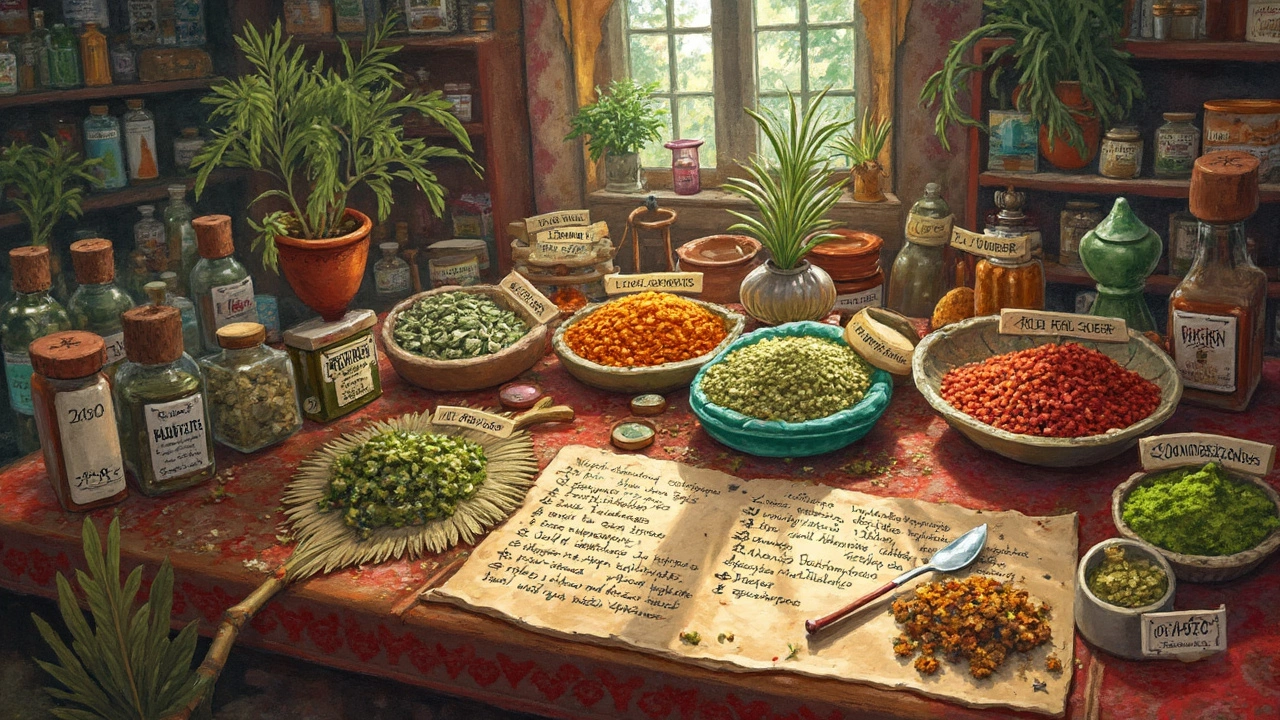Herbs Interaction: Vital Tips for Safe Use of Herbal Remedies
Ever wonder why a natural herb sometimes makes you feel off or messes with a prescription? That’s because herbs have chemistry that can clash with meds, boost effects, or block them entirely. Knowing the basics can keep you healthy and prevent surprise side effects.
Common Herbs That Can Interfere With Medicines
Here are a few everyday herbs that often cause trouble:
St. John’s Wort – used for mood support, but it speeds up the liver’s processing of many drugs. If you’re on birth control, antidepressants, or cholesterol meds, you could end up with lower drug levels and less protection.
Garlic (especially raw or in supplements) – great for the heart, yet it can thin your blood. Mix it with anticoagulants like warfarin and you risk extra bleeding.
Ginseng – often taken for energy. It can raise blood sugar, so people on diabetes meds should watch their numbers closely.
Turmeric/Curcumin – anti‑inflammatory hero, but high doses may interfere with blood thinners and acid‑reducing drugs.
These examples show why a quick check before adding a new herb is worth the time.
How to Spot Potential Interactions
Use these simple steps:
1. Read the label. Look for warnings about drug interactions. Trusted brands usually list them.
2. Ask your doctor or pharmacist. Share every herb, supplement, and prescription you take. They can spot red flags fast.
3. Start low, go slow. If you’re trying a new herb, begin with a small dose and watch for any changes in how you feel.
4. Track your symptoms. Keep a short note of energy, sleep, stomach issues, or any unusual bleeding. This journal helps you and your doctor see patterns.
5. Use reputable sources. Websites of medical universities, government health portals, or certified herbal organizations give reliable interaction info.
Following these steps can catch most problems before they become serious.
On our site you’ll also find articles that dig deeper into specific herb‑related risks. For example, “Herbs That Harm Your Kidneys” explains why some natural remedies can damage kidney function, and “How to Choose the Best Herbal Supplements” walks you through checking product quality and safety.
Remember, “natural” doesn’t always mean “harmless.” Your body reacts to chemicals the same way it does to prescription drugs. Treat herbs with the same respect you give any other medication.
Bottom line: before you mix a herb with a prescription, do a quick check, talk to a healthcare professional, start low, and watch for changes. Doing this keeps you in control of your health while still enjoying the benefits of nature’s pharmacy.





